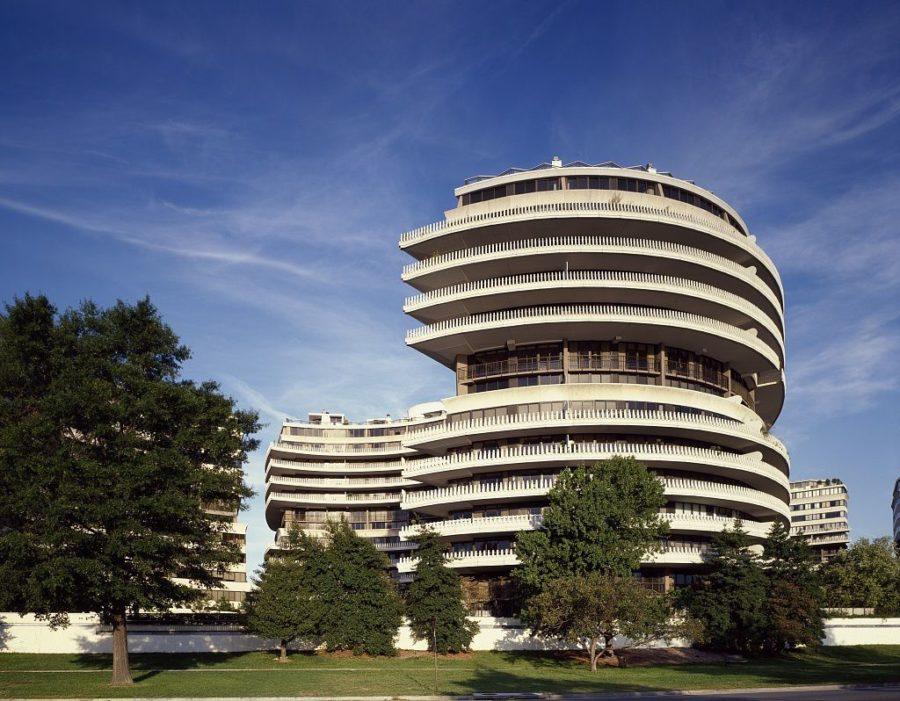Watergate panel discusses current presidential investigations and political division
The Watergate office buildings in D.C. which, after burglars were caught raiding the Democratic National Committee headquarters, was the focus of the Watergate scandal eventually leading to President Nixon’s impeachment.
October 9, 2018
The Watergate Scandal, one of the biggest political scandals in modern American history, centered as the topic of discussion for a panel Monday in the Memorial Union’s Great Hall.
The panel featured Nick Kotz, a Pulitzer Prize-winning reporter; Edward Mezvinsky, who represented Iowa’s first congressional district from 1973 to 1977; and Jonathan Yarowsky, a General Counsel to the House Judiciary Committee during the Watergate hearings. Kathie Obradovich, an opinion editor for the Des Moines Register, moderated the panel.
Partisanship proved to be a major topic of discussion for the panel as all of the panelists noted there was a bipartisan effort to find the truth behind the scandal. They all said this level of bipartisanship does not exist in today’s politics.
“The moderates are gone,” Yarowsky said. “They’re a rare species and there were moderates on both sides of the aisle…people were able to work with each other.”
Yarowsky said the impeachment process is a “fundamental safeguard of our government” and therefore must be kept free from partisan agendas.
Kotz talked at length about the lessons of Watergate and the state of today’s mainstream media. He said the media has not learned much from the scandal and the news media today needs to return to reporting the facts and stop politically editorializing.
“The news media — the press — is really challenged today to try to get back to reporting stories and to stop the political editorializing,” Kotz said. “If you want to see how they present the news, flip from MSNBC to CNN to Fox, and all you have to do is look and listen to the three of them for about 10 minutes, because they are not presenting the news.”
Mezvinsky and Yarowsky answered a question about what would have happened had Gerald Ford not pardoned Nixon once Ford took office. The question sparked a discussion about whether or not a president can be indicted.
Mezvinsky explained how the grand jury during the Watergate hearings treated Nixon as a “unindicted co-conspirator”.
He noted the issue of presidential indictments has become relevant again in U.S. politics and speculated if Nixon would have been indicted, the process would have gone on for a while and the country would have been terribly divided.
Yarowsky said in order for an indictment to stick, there must be an underlying crime. He explained impeachment, however, does not require criminal activity. Even a breach of public trust could be enough for impeachment, but in regards to the current president and the current political climate in general, he said it is unlikely a president would be impeached if there is not an underlying crime.
The panel also discussed the divided nature of the country, with Mezvinsky saying how the fundamental institutions of the United States — the Supreme Court, Congress and the Presidency — have lost much of the public’s faith since the time of Watergate.
“When we voted for [impeachment], we cried,” Mezvinsky said. “Why did we cry? Because I was raised in Ames. We respected the Presidency, and we had hope for our institutions of government. And so I hope tonight we can have a discussion and a learning lesson from the past, and bring forth some hope for the future.”







